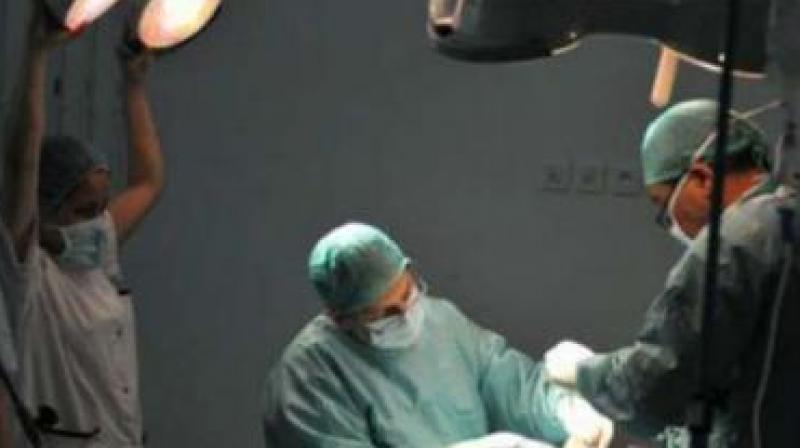Guntur in the grip of Devic's syndrome

Guntur: Increasing number of cases of a condition called Neuromyelitis Optica (usually referred to as NMO) is worrying as the disease, if untreated, will cause irreversible damage to optic nerves and spinal cord, engendering permanent disability.
Nineteen cases of NMO have been registered in the Guntur Government Hospital.
Neurologists say there is very little awareness about NMO, and this is what makes it dangerous as it is treatable if diagnosed early. Dr N.V. Sundarachary, head of the neurology department at GGH said that NMO is a rare neurological disorder and also known as Devic’s disease. Myelo means spinal cord and optica implies optic nerve. It is a neurological autoimmune disorder. Autoimmune disorders are characterised by antibody production against one’s own tissues; in autoimmune disorders the body’s immune system triggers an immune response against itself.
Dr Sundarachary said that 18 NMO patients got primary treatment at GGH and were discharged and getting follow-up treatment. One young patient is undergoing treatment in ICU and will soon recover.
In the human body, water channels play a role in free movement of water in tissues. But in case of NMO patients, antibodies specifically target and act against water channels present in the spinal cord, optic nerves and brainstem structures thereby hindering free movement of water.
Young victim M. Raghavendra Rao undergoing treatment for NMO in GGH first found he had bladder trouble. Later he had difficulty in walking and was finally bedridden.
Dr Sundarachary says that NMO was considered to be a variant of multiple sclerosis as both MS and NMO are autoimmune disorders which are more common in females than in males. He reiterated that NMO is treatable if it is diagnosed early but it results in permanent damage of the tissues of the spinal cord and optic nerve leading to visual and physical impairment if not diagnosed and treated in the early stages. GGH is offering free treatment to NMO patients.

